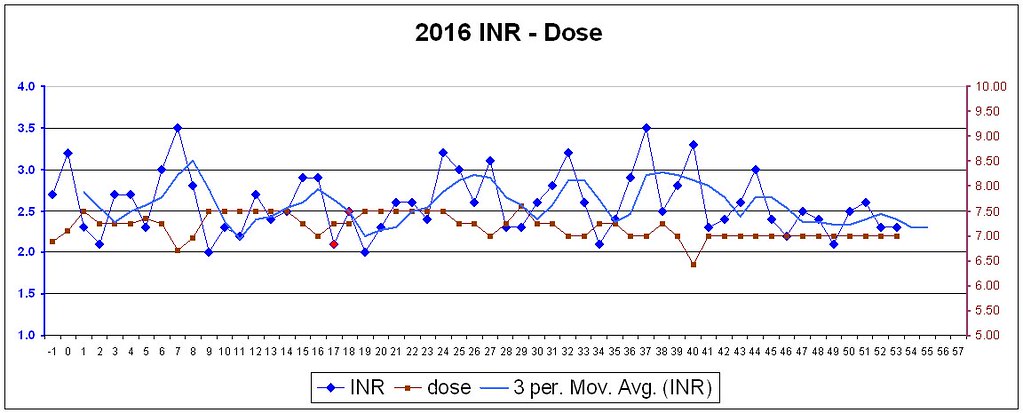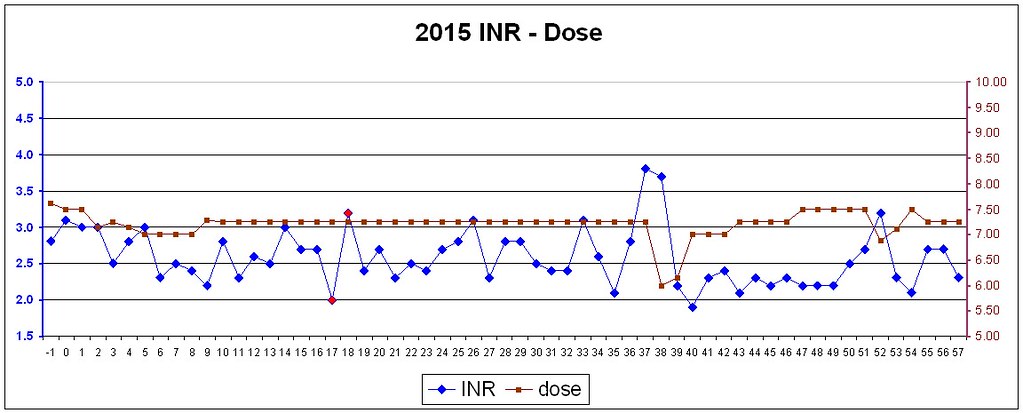billD
Member
My tricuspid valve was replaced with a mechanical heart valve in late 2020. I am fairly active and am interested in how people on warfarin mange their Vitamin K intake especially when they are away from home.

Hey bill ... wow .. a tricuspid!My tricuspid valve was replaced with a mechanical heart valve in late 2020. I am fairly active and am interested in how people on warfarin mange their Vitamin K intake especially when they are away from home.
Thanks for all the information.Hey bill ... wow .. a tricuspid!
I manage my warfarin based on what I've written here:
http://cjeastwd.blogspot.com/2014/09/managing-my-inr.html
and here:
http://cjeastwd.blogspot.com/2015/10/managing-my-inr-example.html
I don't manage my vitamin K, and indeed I prefer to just eat a good diet. There is very little actual evidence that a good healthy diet does anything more than increase your health and perhaps even stabilise your INR
https://www.ncbi.nlm.nih.gov/labs/pmc/articles/PMC4998867/In conclusion, the available evidence does not support current advice to modify dietary habits when starting therapy with VKAs. Restriction of dietary vitamin K intake does not seem to be a valid strategy to improve anticoagulation quality with VKAs. It would be, perhaps, more relevant to maintain stable dietary habit, thus avoiding wide changes in the intake of vitamin K. Based on this, until controlled prospective studies provide firm evidence that dietary vitamin K intake interferes with anticoagulation by VKAs, the putative interaction between food and VKAs should be eliminated from international guidelines.
Best Wishes and Welcome Aboard




I have been monitoring my vitamin K intake (daily intake around 120mg) very closely
but my INR has varied a bit sometimes going up or down by 0.8 or more (e.g. 3.1 to 3.9 in 12 days) without significant dietary changes.


flog us back next time mate ... keeps the whole thing interestingThe maroons outplayed the blues again....
Enter your email address to join: